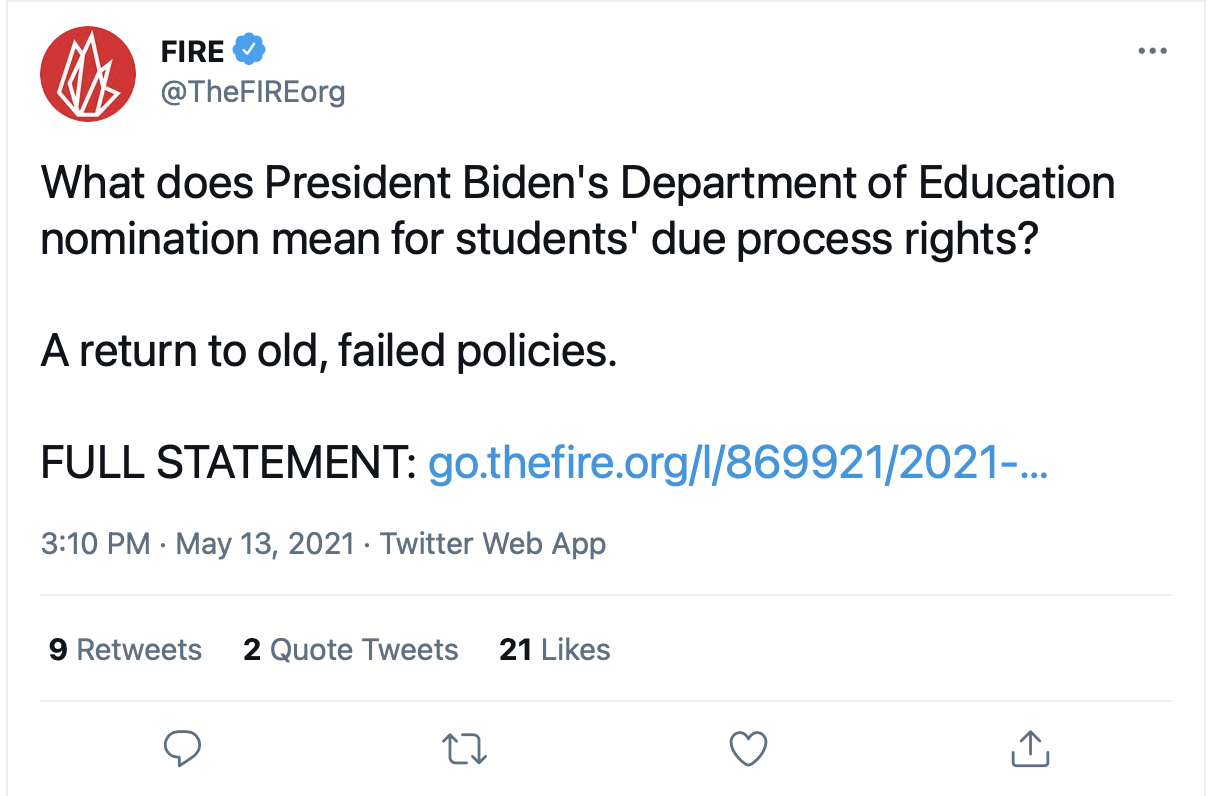You would think it's a good thing for a Women's Studies' Professor to write an op-ed on an issue relating to LBGTQ. Much of the op-ed written by Donna Hughes criticized the the far right and its violent history and ideology. Her employer, University of Rhode Island had no problem with any of that.But she also criticized a position associated with the far left:
The American political left is increasingly diving headfirst into their own world of lies and fantasy and, unlike in the imaginary world of QAnon, real children are becoming actual victims. The trans-sex fantasy, the belief that a person can change his or her sex, either from male to female or from female to male, is spreading largely unquestioned among the political left.” She added that “[w]omen and girls are expected to give up their places of privacy such as restrooms, locker rooms, and even prison cells.
For criticizing LBGTQ ideology, she was publicly condemned by her employer in a flagrant assault on the First Amendment:
A faculty member’s First Amendment and academic freedom rights are not boundless, however, and should be exercised responsibly with due regard for the faculty member’s other obligations, including their obligations to the University’s students and the University community. As stated in the above referenced documents, faculty have a special obligation to show due respect for the opinions of others and to “exercise critical self-discipline and judgment” and “appropriate restraint” in transmitting their personal opinions.
The University, College of Arts and Sciences and Department of Gender and Women Studies are working to support our students and the community as we move through — and learn from — this situation.
The problem is, apparently, that if you criticize an ideology, it is the equivalent of doing violence to real life people. That's what happens when we make a high art of pretending that people are fragile (what we really need is anti-fragility).
Turley accurately concludes: "The only way that Hughes could not cause such harm would be to stay silent on her criticism of the movement. This is a matter that runs to the very core of her writings as an academic and identity as a feminist. , , The silence of other faculty at the university to support their colleague’s rights to free speech and academic freedom is, again, deafening."

